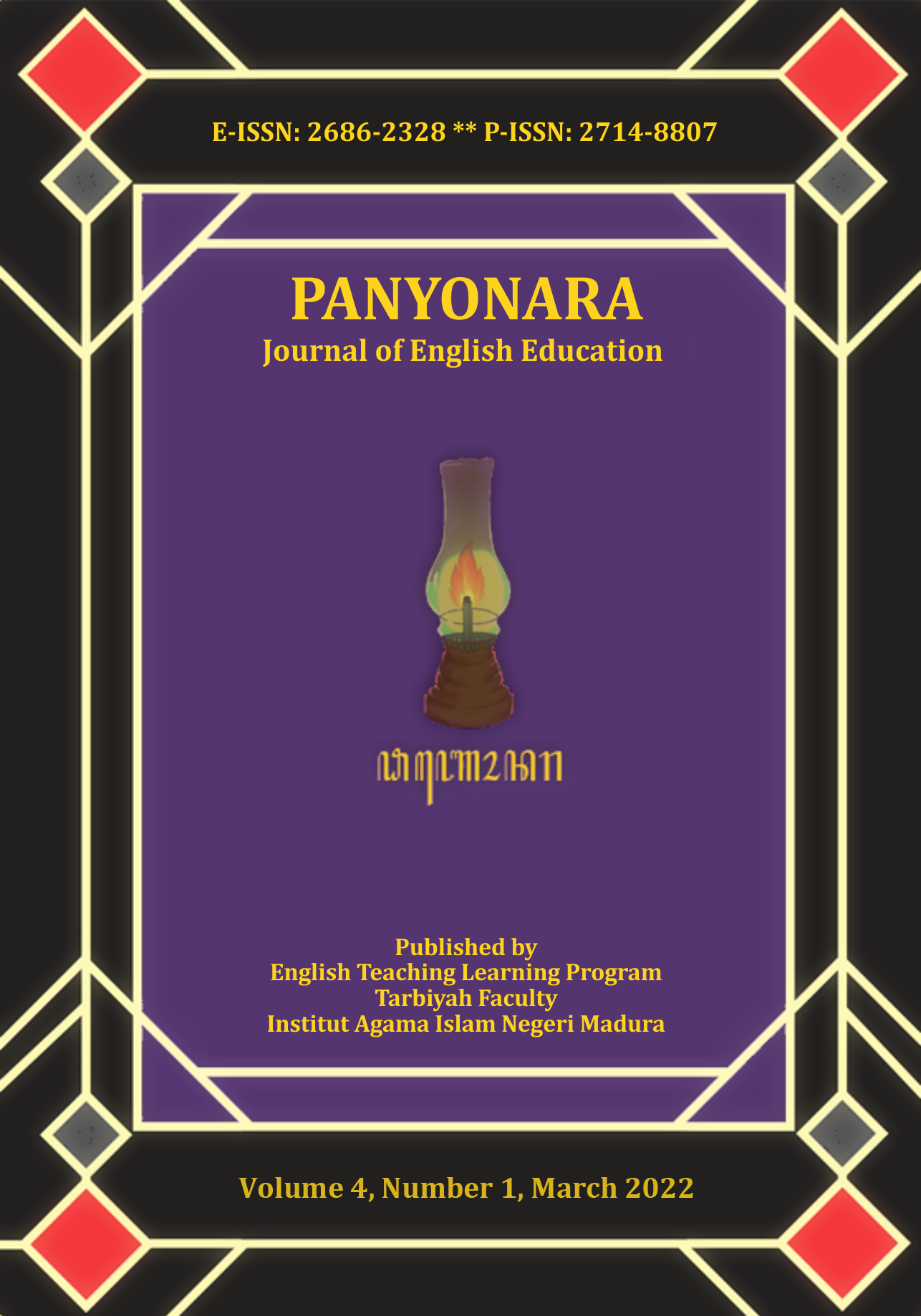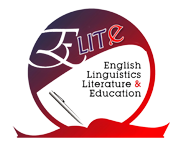Remote Learning in an EFL Classroom from Environment Analysis Viewpoint: A Case Study of a Grammar Class
 Abstract views: 223
,
Abstract views: 223
,
 PDF downloads: 240
PDF downloads: 240
Abstract
Remote learning used in a grammar class that was analyzed using environment analysis was the discussion in this study. It specifically referred to one grammar class, so the domain of this research was a qualitative case study. The data were taken using observation, interview, and document technique. The interpretative analysis was used to analyze the data using environment analysis theory that covers students, lecturer, and situation. The results of this study pointed out three points namely the types of problems taken from students and lecturer’s perspective, and situation observation during the implementation of remote learning in a grammar class. The problems occurred from students’ perspective were technical and non-technical problems; the obstructions from lecturer’s perspective were technical problems; and the obstacles taken from observed situation were the less percentage of students’ participation during opening and closing activities, the droning types of activities during opening, and the excluding technology used during opening and closing activities.
Keywords: environment analysis; EFL classroom; grammar class; remote learning
Downloads
References
Bonnet, A., Doff, S., Elsner, D., Freitag-Hild, B., Hutz, M., Keßler, J.-U., Kirchhoff, P., Kolb, A., Lütge, C., Raith, T., Schmidt, T., Strasser, T., Surkamp, C., Viebrock, B., Vogt, K., Wilden, E., & Yearwood, T. (2018). Teaching English as a Foreign Language: An Introduction (C. Surkamp & B. Viebrock (Eds.)). J.B. Metzler.
Broughton, G., Brumfit, C., Flavell, R., Hill, P., & Pincas, A. (1980). Teaching English as a Foreign Language (J. Eggleston (Ed.); Second). Routledge & Kegan Paul Ltd.
Cheung, A. (2021). Language Teaching during a Pandemic: A Case Study of Zoom Use by a Secondary ESL Teacher in Hong Kong. RELC Journal. https://doi.org/https://doi.org/10.1177/0033688220981784
Creswell, J. W., & Creswell, D. J. (2018). Research design : qualitative, quantitative, and mixed methods approaches (Fifth). SAGE.
Daniela, L., & Visvizi, A. (Eds.). (2022). Remote Learning in Times of Pandemic: Issues, Implications and Best Practice (First). Routledge, Taylor & Francis Group.
Hood, M. (2009). Case Study. In J. Heighham & R. A. Croker (Eds.), Qualitative Research in Applied Linguistics A Practical Introduction (First). Palgrave Macmillan.
Kemdikbud, P. W. (2020). Kemendikbud Resmikan Kebijakan Bantuan Kuota Data Internet 2020. 25 September 2020. https://www.kemdikbud.go.id/main/blog/2021/12/kemendikbudristek-salurkan-tambahan-bantuan-kuota-data-internet
Kvale, S. (2007). Doing Interviews (First). SAGE Publications.
Mowrey, S. C., & Cunningham, D. D. (2021). Assessing Technological Tools for Remote Learning in Early Childhood. In A. Courtney-Dattola (Ed.), Handbook of Research on Adapting Remote Learning Practices for Early Childhood and Elementary School Classrooms. IGI Global.
Nation, I.S.P & Macalister, J. (2010). Language Curriculum Design. Routledge, Taylor & Francis Group.
Sedofia, J., & Ampadu, E. (2021). COVID-19 and Emergency Education Strategies in University of Ghana: Students’ Knowledge of Emergency Remote Learning. In C. Bissessar (Ed.), Emergency Remote Learning, Teaching and Leading: Global Persp. Springer.
Stukalo, N. (2021). How Prepared Are We for Emergency Remote Education? Case of Ukraine. In C. Bissessar (Ed.), Emergency Remote Learning, Teaching and Leading: Global Perspectives. Springer.
The journal uses an Open Access policy under a Creative Commons Attribution-NonCommercial 4.0 International License. Authors who publish with this journal agree to the following terms:
- Authors retain copyright and grant the journal right of first publication with the work simultaneously licensed under a Creative Commons Attribution License that allows others to share the work with an acknowledgment of the work's authorship and initial publication in this journal.
- Authors are able to enter into separate, additional contractual arrangements for the non-exclusive distribution of the journal's published version of the work (e.g., post it to an institutional repository or publish it in a book), with an acknowledgment of its initial publication in this journal.
- Authors are permitted and encouraged to post their work online (e.g., in institutional repositories or on their website) prior to and during the submission process, as it can lead to productive exchanges, as well as earlier and greater citation of published work.
















